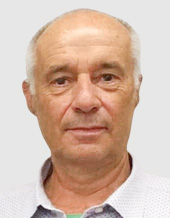Lothar Hennighausen

Fellowship
Hans Fischer Senior Fellowship
Appointment
2020
Institution
National Institute of Diabetes and Digestive and Kidney Diseases,
National Institutes of Health
Department
Genetics and Physiology
Host
Prof. Markus List
Focus Group
Gene-regulatory mechanisms
Short CV
Lothar Hennighausen is a geneticist whose career includes contributions in academia and government. A native of a small town in Germany, he performed undergraduate work in Germany and Scotland, and earned his Ph.D. in Genetics with magna cum laude from the University of Cologne (Germany) in 1982. He conducted research with Dr. Philip Leder at Harvard and joined the National Institutes of Health (USA) to establish a research group in 1985. Hennighausen presently leads a research laboratory that explores genetic circuitry underlying cytokine signaling in mammary tissue and immune cells using genomic tools and mouse genetics. His research covers the more prosaic investigations of milk protein gene expression, the wide-reaching explorations of cytokine signaling through the transcription factor STAT5 and the discovery of super-enhancers in the mammary genome through genome editing. Responding to the COVID-19 pandemic, Hennighausen coordinated international collaborations aimed at understanding the immune response to SARS-CoV-2 variants. Hennighausen’s h-index is 108. Hennighausen takes the same enthusiastic approach to activities outside the lab as he does inside. He is an avid ultra-long-distance cyclist and finisher of numerous global 1200km events, including Paris-Brest-Paris. He is married to Dr. Priscilla Furth, a cancer researcher and Professor at Georgetown University. He has four grown children, living in Germany and the US.
Selected Awards
- 2020, Hans Fischer Senior Fellowship, TUM
- 2019, Director’s Award, National Institutes of Health (NIH) (USA)
- 2017, Director’s Award, National Institute of Diabetes, Digestive and Kidney Diseases, NIH
- 2017, Orloff Award, National Heart and Lung Institute, NIH
- 2012, Distinguished Lecture Series, Lady Davis Institute, McGill, Montreal (Canada)
- 2008, Distinguished World Class Scholar, Korean Society of Science and Engineering (South Korea)
- 2007, Mercator Professorship, Deutsche Forschungsgemeinschaft
- 2003, Olof Pearson Award, Case Western Reserve University, Cleveland (USA)
- 2002, Humboldt Research Prize, Alexander von Humboldt Foundation
- 1987, Selected Speaker, National Press Club, Washington D.C. (USA)
Research Interests
Dr. Hennighausen’ research interests are at the interface between genetics, physiology and disease. He uses molecular and computational tools to monitor the mammalian genome and to identify primal regulatory switches controlling genetic programs. Through modern mouse genetics he strives to decipher the molecular pathology of mutations linked to human disease. Responding to the COVID-19 pandemic, Hennighausen and colleagues from the München Klink and TUM established a program focused on clinical and genomic studies aimed at understanding the immune response to COVID-19 vaccines in high-risk patient groups.
Selected Publications
- Lee HK, Knabl L, Pipperger L, Volland A, Furth PA, Smith HE, Knabl L, Bellmann R, Bernhard C, Kaiser N, Ganzer H, Strohle M, Walser A, con Laer D, Hennighausen L (2021) Immune transcriptomes of highly exposed SARS-CoV-2 asymptomatic seropositive versus seronegative individuals from the Ischgl community. Scientific Reports, (PMID: 33608566). 4 citations.
- Lee HK, Willi M, Miller SM, Kim S, Liu C, Liu DR, Hennighausen L (2018) Targeting fidelity of adenine and cytosine base editors in mice. Nature Commun. (PMID: 30442934). 52 citations.
- Shin HY, Wang C, Lee HK, Yoo KH, Zeng X, Kuhns T, Yang CM, Mohr T, Liu C, Hennighausen L. (2017) CRISPR/Cas9 targeting events cause complex deletions and insertions at 17 sites in the mouse genome. Nat. Commun. (PMID: 28561021). 158 citations.
- Shin HY, Willi M, Yoo KH, Zeng X, Wang C, Metser G and Hennighausen L (2016) Hierarchy within the mammary STAT5-driven Wap super-enhancer. Nature Genetics, 48, 904-911 (PMID: 27376239). 148 citations.
- Yamaji, D., Robinson, W.G., Na, R., Feuermann, Y., Pechold, S., Chen, W. and Hennighausen, L. (2009) Development of mammary luminal progenitor c.ells is controlled by the transcription factor STAT5A. Genes and Development, 23, 2382-2387. 138 citations.
- Cui, Y., Riedlinger, G., Miyoshi, K., Tang, W., Li, C., Deng, C.X., Robinson, G.W. and Hennighausen, L. (2004) Inactivation of Stat5 in mouse mammary epithelium during pregnancy reveals distinct functions in cell proliferation, survival and differentiation. Mol. Cell. Biol., 24, 8037-8047. (PMID: 15340066). 542 citations.
- Wagner, K.-U., Wall, R.J., St-Onge, L., Gruss, P., Garrett, L., Wynshaw-Boris, A., Li, M., Furth, P.A. and Hennighausen, L. (1997) Cre mediated gene deletion in the mammary gland. Nucleic Acids. Res. 25, 4323-4330. 533 citations.
- Liu, X., Robinson, G.W., Wagner, K.-U., Garrett, L., Wynshaw-Boris, A. and Hennighausen, L. (1997) Stat5a is mandatory for adult mammary gland development and lactogenesis. Genes and Dev. 11, 179-186 (PMID: 9009201). 1274 citations.
- Ewald, D., Li, M., Efrat, S., Auer, G., Wall, R.J., Furth, P.A. and Hennighausen, L. (1996) Time-sensitive reversal of hyperplasia in transgenic mice expressing SV40 T antigen. Science 273, 1384-1386. 274 citations.
- Furth, P.A., St. Onge, L., Boger, H., Gruss, P., Gossen, M., Kistner, A., Bujard, H. and Hennighausen, L. (1994) Temporal control of gene expression in transgenic mice by a tetracycline responsive promoter. Proc. Natl. Acad. Sci. U.S.A. 91, 9302-9306. 984 citations.
- Gordon, K., Lee, E., Vitale, J.A., Smith, A.E., Westphal, H. and Hennighausen, L. (1987) Production of human tissue plasminogen activator in transgenic mouse milk. BIO/TECHNOLOGY 5, 1183-1187. 371 citations.
- Hennighausen, L.G. and Sippel, A.E. (1982) Characterization and cloning of the mRNAs specific for the lactating mouse mammary gland. Eur. J. Biochem. 125, 131-141. 155 citations.